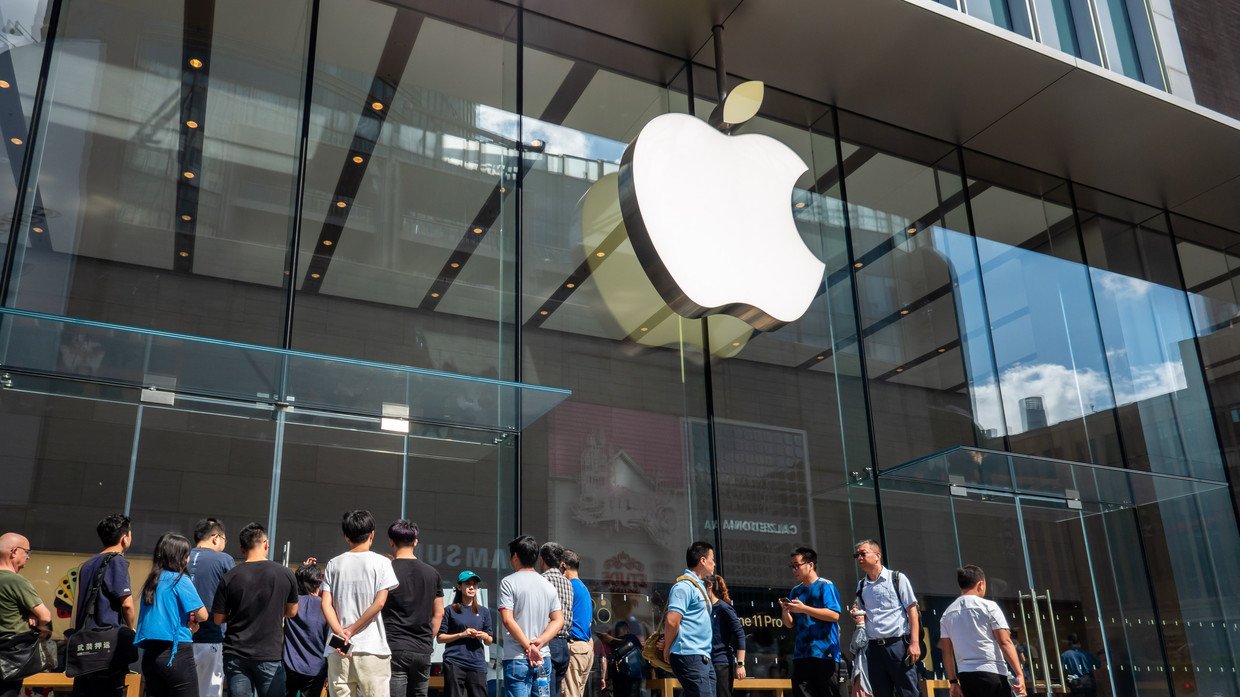Beijing is angry at Apple for allowing a police-tracking map used by Hong Kong protesters in its App Store. Pressure grows on US companies doing business in China to take a side, as virtue-signaling clashes with serving customers.
"Is Apple guiding Hong Kong thugs?" the Chinese People's Daily newspaper wondered in an op-ed published on Wednesday. Beijing tore into the trillion-dollar company for offering HKmap.live, a map app that allows users to report and track police activity, warning the app "facilitates illegal behavior" and that Apple is hurting its reputation among Chinese consumers by "mixing business with politics and commercial activity with illegal activities.”
Also on rt.com Players call for boycott after Blizzard suspends Hong Kong gamer over public support for riots"This recklessness will cause much trouble for Apple," the People's Daily declared, advising the tech firm to "think deeply."
The majority of Apple's products are manufactured in China, and those that aren't are assembled in Texas from Chinese parts. China is the second-largest market for Apple products, and CEO Tim Cook expects it will soon overtake the US as number one.
According to HKmap.live's developers, Apple initially rejected the app during a reviewing process, but reconsidered following an appeal. It allows users to report not only the locations and movement of police, but also the use of tear gas and other protester-specific features. The protests, which began in May over a now-shelved extradition bill, have grown quite violent, with some rioters turning on ordinary citizens who merely express solidarity with the mainland.
It's not as if Apple has a track record of defying China's wishes – the company does not include the Taiwan flag emoji on its Chinese devices, and this week has gone further by hiding the flag from users in Hong Kong and Macau. China does not recognize Taiwan as a separate country.
Nor do people look to Apple as their moral guiding light. The Foxconn factories used by the company in China have become infamous after a wave of worker suicides, so much that Apple had "suicide nets" installed to stop the employees from jumping to their deaths.
So where did this sudden urge to stand up for rioters that have become the darlings of the West come from? Apple joins a lengthening list of American corporate entities – including the makers of adult cartoon 'South Park', the manager of NBA team the Houston Rockets, and Vans shoes – who've piled on China following the outbreak of the protests during the summer.
Virtue-signaling is almost expected of American companies in the Trump era. Celebrities who don't speak out against the president are assumed to be secretly harboring pro-Trump sympathies, for example. China probably seems like an easier target than the president – Beijing is halfway around the world and currently embroiled in a trade war with the US.
Also on rt.com China cancels Brooklyn Nets community event in Shanghai amid tension with NBAHong Kong's cheerleaders are rapidly finding out they may have bitten off more than they can chew. It's rarely a good idea, as a global business, to alienate 1.4 billion people living in the world's second-largest economy. NBA Commissioner Adam Silver, who initially spoke up for Rockets manager Daryl Morey's "freedom of expression" after he tweeted in support of the protests, has modified his statement to include understanding that there are "consequences" to such freedoms and is scrambling to reach an understanding with China after the nation's largest state-run TV station dropped NBA games in retaliation.
Look for Apple to do something similar if the government controlling its manufacturing and its second-largest market decides to punish its insolence.
More importantly, most Americans don't want a side of politics when they buy a smartphone or go to a basketball game. The vast majority of consumers – those who aren't on Twitter shrieking over the latest revelation that a CEO attended a Trump fundraiser – are not interested in a company's ability to virtue signal. They want a product that works, not one that tells them what to think.
By Helen Buyniski, RT
Like this story? Share it with a friend!

